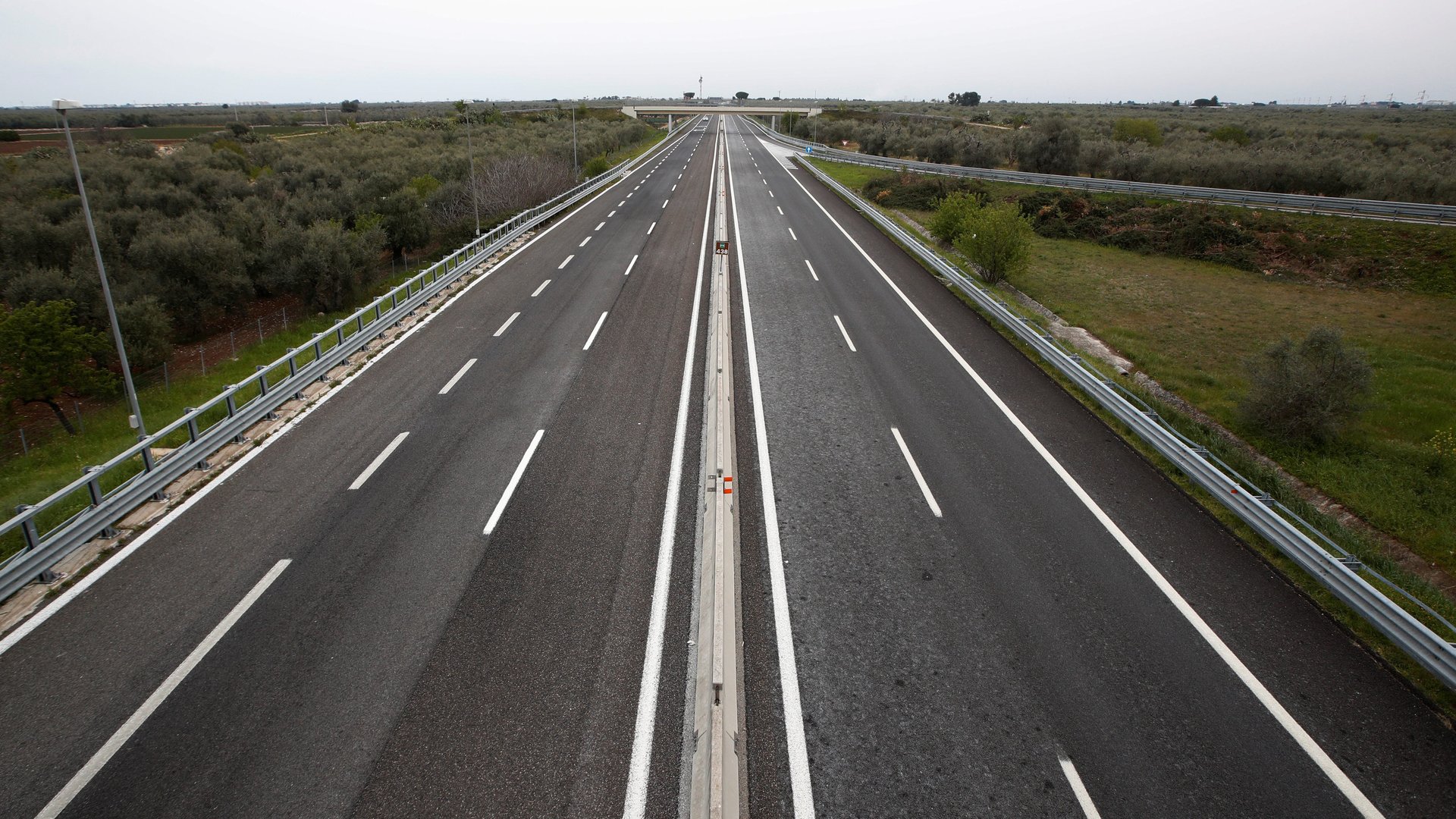Americans still aren’t driving to work
America’s wide-open roads are more open than ever. Despite a partial rebound in the pandemic-induced decline of vehicle miles traveled, Americans are still driving about 15% less than in the same period in 2019, according to US government data compiled by Sivak Applied Research.


America’s wide-open roads are more open than ever. Despite a partial rebound in the pandemic-induced decline of vehicle miles traveled, Americans are still driving about 15% less than in the same period in 2019, according to US government data compiled by Sivak Applied Research.
That mirrors even steeper decline in vehicle sales (20%) and an astounding 80% drop in air miles as of June. “The observed drops are unprecedented,” said Michael Sivak, a transportation researcher.
It’s hard to pinpoint all the forces at work. But it’s clear that the summer, and a slow accommodation to long-term pandemic restrictions, led to more travel in the early summer months. Many families and friends (mine included) drove to spend weeks of the summer together after isolating and testing.
But the fact that the rebound remains low likely reflects the new normal during the pandemic, and perhaps beyond. First, unemployment remains high, around 8.4%, meaning many Americans no longer make daily commutes. But many employed workers are also avoiding the office or workplace, perhaps never to return.
In California, this is being enshrined in policy. Today, San Francisco’s Metropolitan Transportation Commission voted to make working from home mandatory for three days per week for at least 60% of employees of major companies. Final approval of the plan will be decided in November. The vote makes shorter workweeks, flexible schedules, or remote work official policy, rather than a perk for industries and jobs that don’t demand a physical presence.
The decision to make telecommuting mandatory for some workers is part of the city’s 2050 blueprint plan to cut back on crippling traffic congestion and greenhouse gas emissions. For transit agencies in the middle of a pandemic, it’s one of the only ways to solve overcrowding if thousands of people try to pour back into downtown skyscrapers.
San Francisco has already seen the return of gridlock in June. “Only 15% of the economy is reopened and we have no more capacity to move more cars,” said Jeffrey Tumlin, director of transportation for San Francisco’s Municipal Transportation Agency earlier this summer, prompting the agency to rethink how it will move the region’s workforce. “Covid has forced some pretty radical changes in the transit world.”